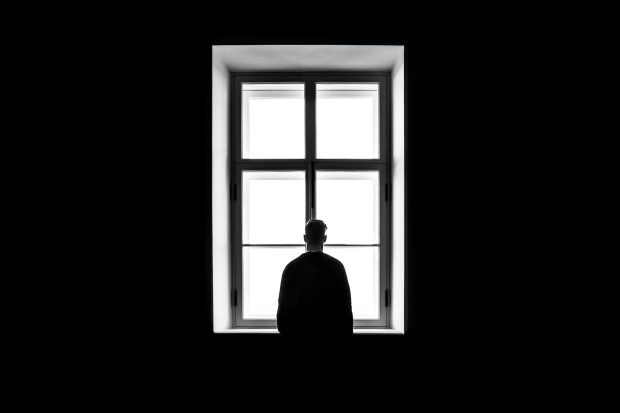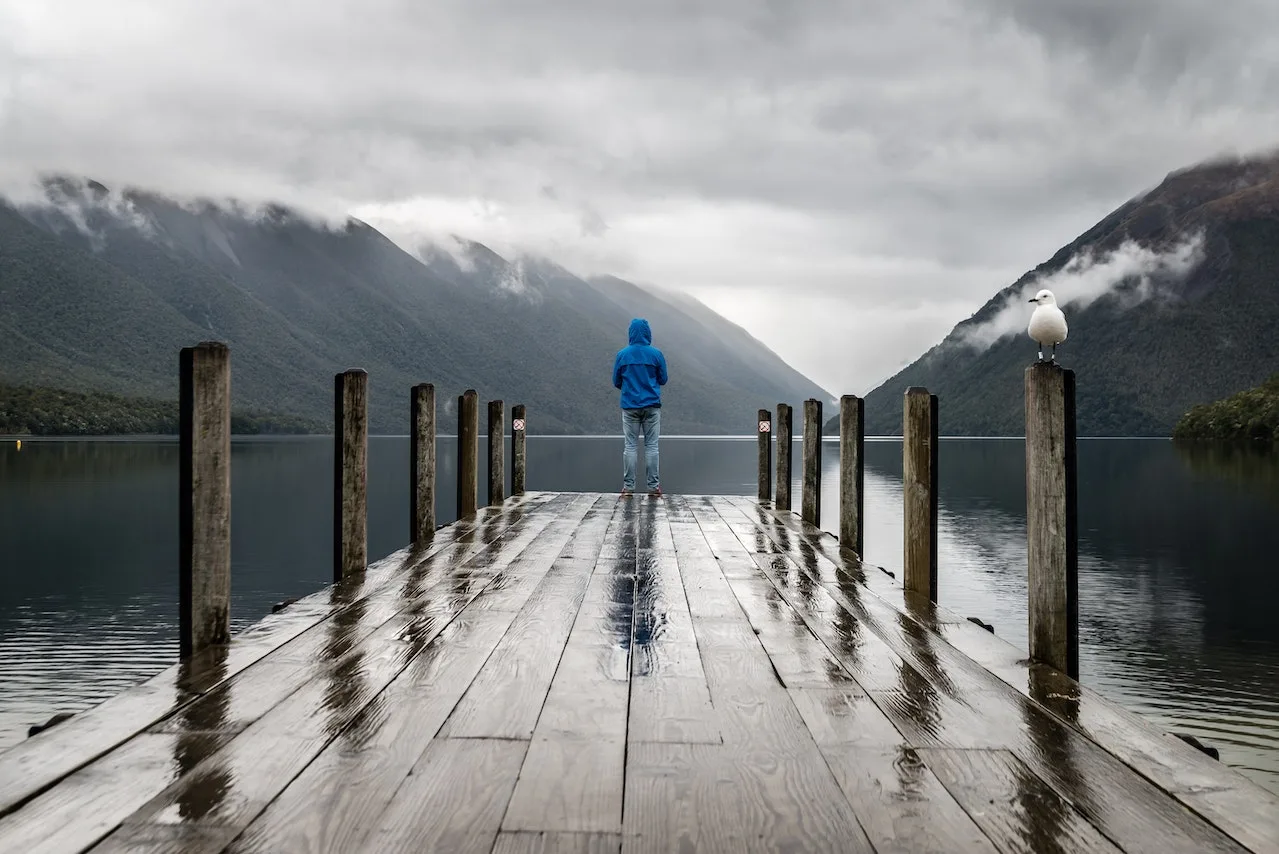Have you ever been lonely? We’ve all experienced feelings of loneliness, whether it’s set off by moving to a new city, or maybe just being left out of a group dinner. Now, while feelings of loneliness are normal, it appears that rates of loneliness have accelerated to such a point that the US Surgeon General has sounded the alarm and declared that we’re in the midst of a loneliness epidemic.
The Loneliness Epidemic
“In recent years, about one-in-two adults in America reported experiencing loneliness. And that was before the COVID-19 pandemic cut off so many of us from friends, loved ones, and support systems, exacerbating loneliness and isolation” – Dr. Vivek Murthy, US Surgeon General
In a report published earlier this month titled “Our Epidemic of Loneliness and Isolation”, Dr. Vivek Murthy, the US Surgeon General, speaks about the steady increase in loneliness around the country, which is threatening our longevity.
Murthy’s report makes sure to include data that display the rising rates of loneliness, and the data showed that:
- A 1972 poll revealed how roughly 45% of Americans felt they could trust other Americans. Unfortunately, this percentage dropped to roughly 30% in 2016.
- Social isolation increased from 2003 (285-minutes/day, 142.5-hours/month) to 2020 (333-minutes/day, 166.5-hours/month).
- The amount of time respondents engaged with friends socially in person from 2003 to 2020 decreased by 20 hours per month.
- For young people young aged 15 to 24, time spent in person with friends has reduced by nearly 70% over almost two decades.
- In 1960, single-person households accounted for only 13% of all U.S. households. In 2022, that number rose to 29% of all households.
- 49% of Americans in 2021 reported having three or fewer close friends, compared to 27% of Americans who reported the same in 1990.
- In 2018, only 16% of Americans reported that they felt very attached to their local community.
What’s causing loneliness?
So what could be the reason behind these staggering numbers?
Murthy, who is also the author of Together: The Healing Power of Human Connection in a Sometimes Lonely World, believes the answer to be a complex one.
Aside from individuals choosing not to get married or have no or fewer children, the factors that can increase the risk for loneliness include:
- poor social infrastructure
- poor physical or mental health
- disabilities
- financial insecurity
- belonging to a racial or ethnic minority, or identifying as LGBTQIA+.
Additionally, the use of technology has also played a role in the rising rates of loneliness. While social media has created opportunities for people to connect, it may also exacerbate loneliness. Dr. Murthy points out how technology can reduce the quality of our interactions and diminish our self-esteem.
The report also references a study that found that participants who reportedly used social media for more than two hours a day faced a two-fold risk of experiencing increased perceptions of social isolation compared to those who used social media for less than 30 minutes per day.
How Does Loneliness Affect Longevity?
“Loneliness is far more than just a bad feeling—it harms both individual and societal health,” – Dr. Vivek Murthy, US Surgeon General
Blue Zones are five regions in the world where people live much longer than average, and are often free of any chronic diseases. One of the main trends identified amongst these areas is their sense of community. Whether it’s the Okinawans and their moais, or the Seventh-day Adventists in Loma Linda who spend their Saturdays resting and socializing, it’s clear that family and social ties can help promote longevity.

Photo by Sasha Freemind on Unsplash
Unfortunately, there are serious health consequences of loneliness. Per Dr. Murthy’s report, loneliness can affect your health in the following ways:
- Loneliness and social isolation increase the risk of premature death by 26% and 29%.
- Loneliness increases the risk of premature death, as much as smoking up to 15 cigarettes a day.
- Poor social connection is associated with a 29% increased risk of heart disease and a 32% increased risk of stroke.
- Loneliness is associated with an increased risk for anxiety, depression, and dementia. It’s also been linked to an increased susceptibility to viruses and respiratory illnesses.
Loneliness has been linked to lower academic achievement and poor performance at work, and a study published last year found that stress-related absenteeism, attributed to loneliness, costs employers an estimated $154 billion.
Tackling the loneliness epidemic
“Given the profound consequences of loneliness and isolation, we have an opportunity, an obligation, to make the same investments in addressing social connections that we have made in addressing tobacco use, obesity, and the addiction crisis,” – Dr. Vivek Murthy, U.S. Surgeon General.
While Dr. Murthy’s report does delve into the loneliness crisis, he also provides a national framework to help rebuild social connections and communities in America. The framework is based on six foundational pillars, which are:
- Strengthen social infrastructure: Communities should design environments that promote connection, and establish and scale community connection programs. They should also invest in institutions that bring people together.
- Enact pro-connection public policies: State, local, and tribal governments can help strengthen social connection and community by adopting and advancing policies that minimize harm due to disconnection and also encourage more connections across communities.
- Mobilize the health sector: Loneliness and isolation are serious health hazards, so investing in healthcare provider education should be a priority. It would also be advisable to create systems that enable healthcare providers to educate patients and respond to their needs.
- Reform digital environments: Governments and technology companies should work together to not only check our relationship with technology but to also use these findings to reform digital environments to foster positive social connections.
- Deepen our knowledge: It is the responsibility of governments and researchers to work together to broaden public awareness and education of drivers and solutions to connection and disconnection.
- Cultivate a culture of connection: Individuals, alongside organizations and governments, need to work together to cultivate a culture of connection.
What can I do if I’m lonely?
“For me, it took more than a year of struggling with the pain and shame of loneliness, but I eventually found my footing. I didn’t do it on my own. My mother… father… and sister called me every day to remind me that they loved me for who I was. My wife…reminded me that the light she had seen in me when we first met was still there, even if I couldn’t see it at times. And my friends…committed to doing video conferences once a month and texting and talking weekly about the issues that weighed on our hearts and minds.
During one of my lowest lows, the people in my life patched me up with their acts of love and connection. It is still a work in progress, but years later, in my second tenure in public service, I am making a much bigger effort to build and maintain my relationships. I am a better father, husband, friend, and surgeon general as a result.”
These are the words spoken by Dr. Vivek Murthy, who has struggled with feelings of loneliness in the past. If you find that you are also struggling with the same emotions, you can mitigate these feelings. They conclude:
- Join a club or group based on an interest you enjoy
- Volunteer
- If you work from home, try working from a coffee shop or café
- Don’t shy away from reaching out to new people you’ve met
- Adopt regular face-to-face meet-ups with your friends and family
- Cut back on social media
- Use friendship-based apps like Bumble BFF
If you find that feelings of loneliness are starting to have a detrimental effect on your mental health, it’s important that you reach out to a health professional.
Want to know more?
Seniors are more likely to feel the effects, increasing their boredom, social isolation, and loneliness. If your senior loved ones are struggling with boredom and solitude, here are some fun activities you can do with older adults to beat loneliness.
References
Bowers, Anne & Wu, Joshua & Lustig, Stuart & Nemecek, Douglas. (2022). Loneliness influences avoidable absenteeism and turnover intention reported by adult workers in the United States. Journal of Organizational Effectiveness: People and Performance. ahead-of-print. 10.1108/JOEPP-03-2021-0076.
Primack, B. A., Shensa, A., Sidani, J. E., Whaite, E. O., Lin, L. Y., Rosen, D., Colditz, J. B., Radovic, A., & Miller, E. (2017). Social Media Use and Perceived Social Isolation Among Young Adults in the U.S. American journal of preventive medicine, 53(1), 1–8. https://doi.org/10.1016/j.amepre.2017.01.010





![women [longevity live]](https://longevitylive.com/wp-content/uploads/2020/01/photo-of-women-walking-down-the-street-1116984-100x100.jpg)









